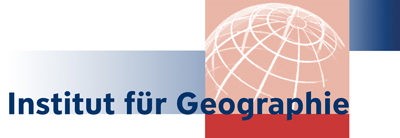Institutskolloquium PG: Forest Monitoring Tool: An Open-Source Approach for Urban Forest Management. – Mi. 22.05.2024
Forest Monitoring Tool: An Open-Source Approach for Urban Forest Management.
A. Ag., M.Sc., M. A. Christopher Scarpone (Toronto Metropolitan University, Canada)
Moderation: Prof. Dr. Blake Walker
Christopher Scarpone is a Digital Soil Scientist and Articling Agrologist (A. Ag.) in Toronto, Canada, and a doctoral candidate at Toronto Metropolitan University. His research focuses on addressing current methodological challenges in geoscience and the environmental sciences, drawing on methods and approaches from Soil Science, Ecology, Geographic Information Science, Computer Science, Statistics, and Data Science, combined with years of work experience in industry. He holds a Master of Science from Simon Fraser University, and a Master of Spatial Analysis and Bachelor in Geographic Analysis from Ryerson University. Currently, his PhD work addresses current challenges in Urban Ecology, developing approaches for data generation and analysis by manipulating manual field measurements, LiDaR, and Earth Observation/remote sensing data to rapidly monitor and analyse time series of acute environmental disturbances in urban ecosystems.
In this colloquium, he will present the novel Forest Monitoring Tool (FMT), an open-source, open-access web application designed to facilitate user-friendly interaction with point clouds for forest monitoring. The FMT outputs include digital terrain models, canopy height models, and elevation differencing with classification, catering to users of varying needs and levels of expertise. It allows comprehensive change detection analysis and exploration of forest ecosystems through 3D plots, a 2D interface, and a web map. The FMT offers server architecture guidelines to assist users in creating their own web tools, aiming to standardize data pipelines and foster interdisciplinary collaboration. The FMT’s development, deployment, and potential use in the geosciences are described, with a practical demonstration of its capabilities in Toronto’s Tommy Thompson Park to understand the rates of deforestation that are occurring due to the overpopulation of the Double Crested Cormorant in the park.
Wann: Mittwoch, 22.05.2024 von 12:30 bis 14:00 Uhr
Wo: Präsenz, Seminarraum Tennenlohe, Wetterkreuz 15, 91058 Erlangen.
Vortragsübersicht für das Institutskolloquium im Sommersemester 2024.
******
Fragen zum Kolloquium?
Organisation: Maximilian Brönner (KG) (maximilian.broenner@fau.de) & Dr. Sebastian Feick (PG) (sebastian.feick@fau.de)

